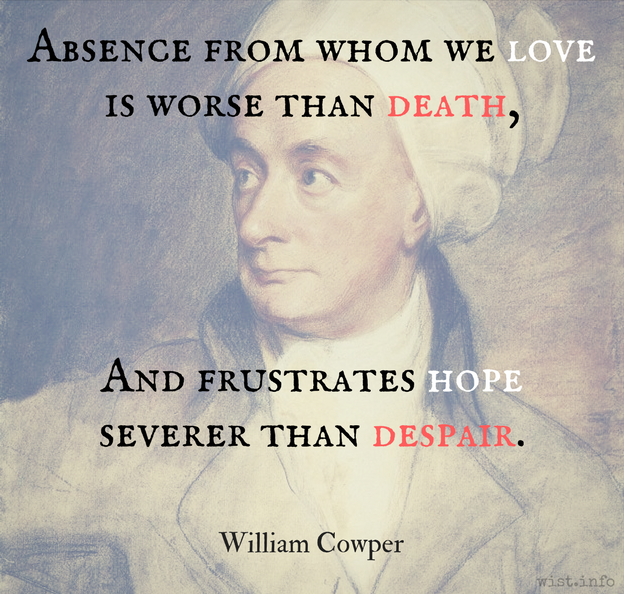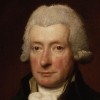But a democracy is different. Each of us has got to feel that we can influence events, no matter how slight the influence. When people start believing they can’t they get frustrated, and angry. They feel helpless and they start going to extremes.
Fletcher Knebel (1911-1993) American author
Seven Days in May, “Tuesday Afternoon” [Lyman] (1962)[with Charles W. Bailey II]
(Source)
Quotations about:
frustration
Note not all quotations have been tagged, so Search may find additional quotes on this topic.
A man may feel so completely thwarted that he seeks no form of satisfaction, but only distraction and oblivion. He then becomes a devotee of “pleasure.” That is to say, he seeks to make life bearable by becoming less alive. Drunkenness, for example, is temporary suicide: the happiness that it brings is merely negative, a momentary cessation of unhappiness.
Bertrand Russell (1872-1970) English mathematician and philosopher
Conquest of Happiness, Part 1, ch. 1 “What Makes People Unhappy?” (1930)
(Source)
“I love and hate.” “At once?” you ask, “Now pray explain.”
“I know not how; I feel ’tis so, I’m rent in twain.”[Odi et amo. quare id faciam fortasse requiris
nescio, sed fieri sentio et excrucior.]Catullus (c. 84 BC – c. 54 BC) Latin poet [Gaius Valerius Catullus]
Carmina # 85 [tr. Symons-Jeune (1923)]
(Source)
(Source (Latin)). Alternate translations:Tho' I hate, yet I love! -- you'll perhaps ask me, how?
I can't tell; but I'm vext, and feel that I do.
[tr. Nott (1795), # 82 "On His Love"]I hate and love -- ask why -- I can't explain,
I feel 'tis so, and feel it racking pain.
[tr. Lamb (1821), "On His Own Love"]I hate and love -- wherefore I cannot tell,
But by my tortures know the fact too well.
[tr. T. Martin (1861), "Love's Unreason"]I have and love. "Why do I so?"
Perhaps you ask. I can't explain:
The bitter fact I only know,
And torture racks my brain.
[tr. Cranstoun (1867), "On His Love"]Half I hate, half love. How so? one haply requireth.
Nay, I know not; alas feel it, in agony groan.
[tr. Ellis (1871)]Hate I, and love I. Haps thou'lt ask me wherefore I do so.
Wot I not, yet so I do feeling a torture of pain.
[tr. Burton (1893), "How the Poet Loves"]I hate and I love. Why I do this, perhaps you ask. I know not, but I feel it happening and I am tortured.
[tr. Smithers (1894)]I hate and love. Why I do so, perhaps you ask. I know not, but I feel it, and I am in torment.
[tr. Warre Cornish (1904)]I hate and yet I love; perhaps you ask how this can be. I do not know, but that it is so I feel too well, and live in torment.
[tr. Stuttaford (1912)]I hate and love. You question "How?" I lack
An answer, but I feel it on the rack.
[tr. MacNaghten (1925)]I hate and love, nor can the reason tell;
But that I love and hate I know too well.
[tr. Wright (1926), "Odi et Amo"]I hate and love.
And if you ask me why,
I have no answer, but I discern,
can feel, my senses rooted in eternal torture.
[tr. Gregory (1931)]I hate & love. And if you should ask how I can do both,
I couldn't say; but I feel it, and it shivers me.
[tr. C. Martin (1979)]I hate and love. And why, perhaps you’ll ask.
I don’t know: but I feel, and I’m tormented.
[tr. Kline (2001), "Love-Hate"]I hate and love. You wonder, perhaps, why I'd do that?
I have no idea. I just feel it. I am crucified.
[tr. Green (2005)]I hate and I love. How do I do that, perhaps you ask?
I don't know. But I feel it is happening and I am tormented.
[tr. Wikibooks (2017)]I hate and I love. Why I do this, perhaps you ask.
I do not know, but I feel it being done and I am tormented.
[tr. Wikisource (2018)]I hate and I love: you might ask why I do this --
I don’t know, but I see it happen and it’s killing me.
[tr. @sententique (2023)]I hate, I love; I love, I hate.
But why, you ask again.
I don't know if it's fault, or fate,
This such exquisite pain.
[tr. Hill (2024)]
We know that the poor are distressed by their many wants, and that nobody relieves them; but if the rich feel resentment, it is at lacking any single thing, or meeting with resistance from a single person.
[On sait que les pauvres sont chagrins de ce que tout leur manque, et que personne ne les soulage; mais s’il est vrai que les riches soient colères, c’est de ce que la moindre chose puisse leur manquer, ou que quelqu’un veuille leur résister.]
Jean de La Bruyère (1645-1696) French essayist, moralist
The Characters [Les Caractères], ch. 6 “Of Gifts of Fortune [Des Biens de Fortune],” § 48 (6.48) (1688) [tr. Stewart (1970)]
(Source)
(Source (French)). Alternate translations:The Poor are troubled that they want all things, and no body comforts them. The Rich are angry that they can want the least thing, or that any one would resist them.
[Bullord ed. (1696)]The Poor are troubled that they want every thing, and no body comforts them. The Rich are angry that they should want the least thing, or that any one should oppose them.
[Curll ed. (1713)]The Grief of the Poor is, that they want all Things, and no body comforts them. The Rich are angry if they want the least Thing, is any one contradict or oppose them.
[Browne ed. (1752)]It is well known that the poor are sad because they want everything and nobody comforts them; but if it be true that the rich are irascible, it is because they may want the smallest thing, or that some one might oppose them.
[tr. Van Laun (1885)]
Many of us affect a tone of irony about gadgets, as if we lived always in realms above and dealt with trifles only during rare descents from sublime thoughts. The truth is that more and more of the important things in life turn on pinpoints. Our frustrations begin in trivialities — a telephone out of order, a car that will not start, a claim check whose number has been misread. The thing in cellophane that cannot be got at — plain to the sight but sealed like an egg — is the modern version of the torture of Tantalus. Catastrophes we will deal with like heroes, but the bottle top that defies us saps our morale, like the tiny arrows of the Lilliputians that maddened Gulliver and set his strength at naught.
Jacques Barzun (1907-2012) French-American historian, educator, polymath
God’s Country and Mine, Part 3, ch. 12 (1954)
(Source)
Despair is anger with no place to go.
Mignon McLaughlin (1913-1983) American journalist and author
The Neurotic’s Notebook, ch. 8 (1963)
(Source)
“Yet doth he live!” exclaims th’ impatient heir,
And sighs for sables which he must not wear.
People keep telling me they are frustrated and ask, “What can I do?” I say organize, get registered, and vote like you’ve never voted before.
John Lewis (1940-2020) American politician and civil rights leader
Twitter (15 Mar 2016)
(Source)
Lewis used the phrase multiple times in his career.
Scratch the surface of most cynics and you find a frustrated idealist — someone who made the mistake of converting his ideals into expectations.
Peter Senge (b. 1947) American systems scientist, lecturer, academic
The Fifth Discipline, Part 3, ch. 8 (1990)
(Source)
Life is full of doors that don’t open when you knock, equally spaced amid those that open when you don’t want them to.
It is not a threat but a fact of history that if an oppressed people’s pent-up emotions are not nonviolently released, they will be violently released. So let the Negro march. Let him make pilgrimages to city hall. Let him go on freedom rides. And above all, make an effort to understand why he must do this. For if his frustration and despair are allowed to continue piling up, millions of Negroes will seek solace and security in black-nationalist ideologies. And this, inevitably, would lead to a frightening racial nightmare.
Martin Luther King, Jr. (1929-1968) American clergyman, civil rights leader, social activist, preacher
Playboy interview (Jan 1965)
(Source)
Rage is caused by a conviction, almost comic in its optimistic origins (however tragic in its effects), that a given frustration has not been written into the contract of life.
Alain de Botton (b. 1969) Swiss-British author
The Consolations of Philosophy, ch. 3 “Consolation for Frustration” (2000)
(Source)
To have a discussion coolly waived when you feel that justice is all on your side is even more exasperating in marriage than in philosophy.
George Eliot (1819-1880) English novelist [pseud. of Mary Ann Evans]
Middlemarch, Book 3, ch. 24 (1871)
(Source)
Though the terrain of frustration may be vast — from a stubbed toe to an untimely death — at the heart of every frustration lies a basic structure: the collision of a wish with an unyielding reality.
Even the best cooks were saucepan throwers when the soufflé collapsed.
Absence from whom we love is worse than death,
And frustrate hope severer than despair.William Cowper (1731-1800) English poet
“Hope, like the short-lived ray that gleams awhile”
(Source)
I’ve learned that you can tell a lot about a man by the way he handles these three things: a rainy holiday, lost luggage, and tangled Christmas tree lights.
H. Jackson "Jack" Brown, Jr. (b. 1940) American writer
Live and Learn and Pass It On (1991)
Attributed by Brown to a 52-year old person. Often misattributed (with the phrase "rainy day") to Maya Angelou. For more see here.
We live in an age of Wrath. It is to be found in the terrorist, the kidnapper, the hijacker, the looter, and in the clenched fist of the demonstrator. […] When we ask what is their justification, they hardly have to give an answer, because our age finds it for them. They are angry. That is apparently enough. We justify their Wrath, so we justify their violence. If someone thinks that he has cause to be angry, he may act from his Anger as destructively as he sees fit. In fact, we have come close to the point of giving to Wrath an incontestable license to terrorize our society, just as an angry man may terrorize his family, but whereas we do not excuse the husband or the father, we extend our sympathy and understanding to the terrorist.
We for a certainty are not the first
Have sat in taverns while the tempest hurled
Their hopeful plans to emptiness, and cursed
Whatever brute and blackguard made the world.A. E. Housman (1859-1936) English scholar and poet [Alfred Edward Housman]
“The Chestnut Casts His Flambeaux and the Flowers,” st. 3, Last Poems, # 9 (1922)
(Source)
The awareness of their individual blemishes and shortcomings inclines the frustrated to detect ill will and meanness in their fellow men. Self-contempt, however vague, sharpens our eyes for the imperfections of others. We usually strive to reveal in others the blemishes we hide in ourselves.
Eric Hoffer (1902-1983) American writer, philosopher, longshoreman
True Believer: Thoughts on the Nature of Mass Movements, Part 3, ch. 14, § 100 (1951)
(Source)
DANDIN: It infuriates me to be wrong when I know I’m right.
[J’enrage de bon cœur d’avoir tort, lorsque j’ai raison.]
Molière (1622-1673) French playwright, actor [stage name for Jean-Baptiste Poquelin]
George Dandin, or the Confounded Husband [oui le Mari confondu], Act 1, sc. 7 (1668)
(Source)
This unsourced translation is widely attributed to Molière, but almost never with a citation to a particular play.
Interestingly, in context, this aside is not about stubbornly sticking to a point, even when demonstrably incorrect. In Dandin's case, he's complaining about how his righteous accusation of his wife being unfaithful has been turned around by others into him being the offending party. This is clearer in some of the translations below.
As with so many Molière plays, the attribution to scene 7 can vary between translations.
(Source (French)). Other translations:I'm vex'd at my Heart to be found Fault with when I am in the Right.
[Source (1748)]It makes me mad to be put in the wrong, when I am in the right.
[tr. Van Laun (1860?)]I shall go mad at thus being made to be wrong when I am right.
[tr. Wall (1876)]It makes me savage to seem wrong when I am right.
[tr. Wormeley (1894)]I am wild at being put in the wrong when I am right.
[tr. Waller (1907)]This tears me open: to be in the wrong when I'm right.
[tr. Bermel (1987)]

























